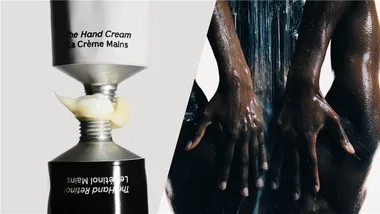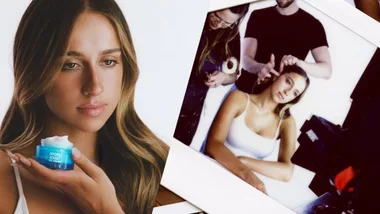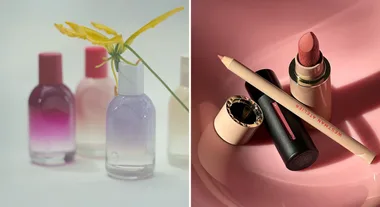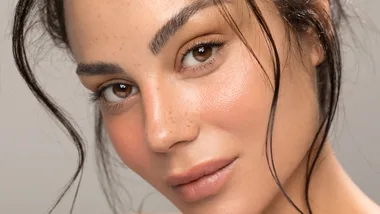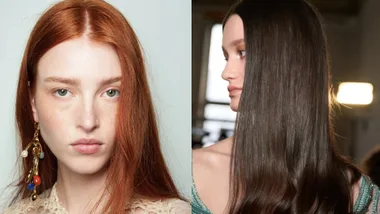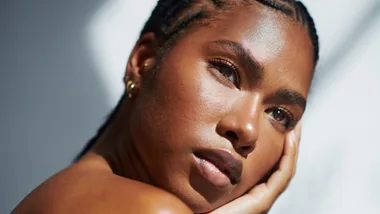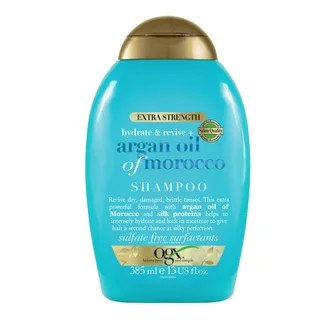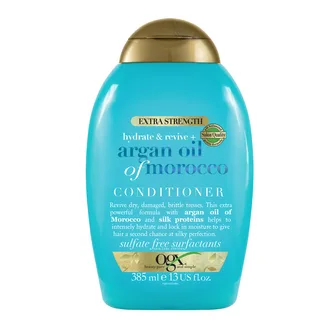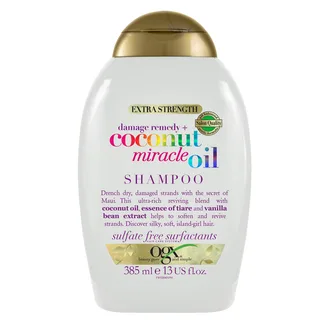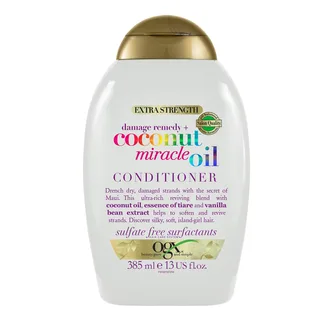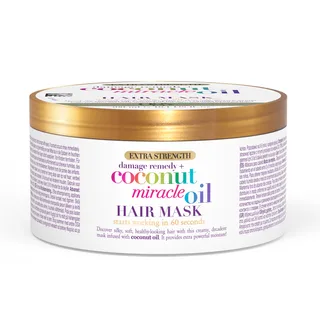We all know that a bad hair day can impact our confidence. But reinventing lifeless, damaged hair can be, well, a challenge.
The good news is that understanding your hair, what it needs, and nourishing it with the right ingredients will put you in the fast lane to healthy, glossy, voluminous locks.
Understanding Your Hair
But first, a little science to help better acquaint you with your hair type, condition and strands’ structure.
Typically, each strand of hair consists of two or three layers: the cuticle, or protective outer layer; the cortex, which holds the pigment and forms the bulk of hair; and the medulla, which is usually only present in thicker hair.
It’s the cuticle’s job to protect the inner layers from damage and maintain moisture. When the cuticle is healthy, its tiny exterior scales are flat, reflect light and appear shiny. With a little help from the natural oils our sebaceous glands produce, this power duo work together to nourish the scalp and hair shaft, coating each strand and helping the cuticle to retain moisture, prevent hair damage and friction, and create a smooth, shiny and reflective appearance.
When the cuticle is damaged, this can cause moisture loss and dry hair, which causes further damage, such as split ends, frizz, dullness, and brittle, limp locks. If you don’t treat dry hair, hair damage will become worse.

Disruptors: What Causes Dry & Damaged Hair?
Apart from health, medical conditions, stress and vitamin deficiencies, the most common culprits to cause dry and damaged hair include:
* Excessive hair washing, which strips those natural oils.
* Using harsh shampoos, conditioners and styling products.
* Blow-drying hair and using other heat appliances.
* Washing hair in hot water, which dehydrates hair (and skin).
* Excessive chemical treatments.
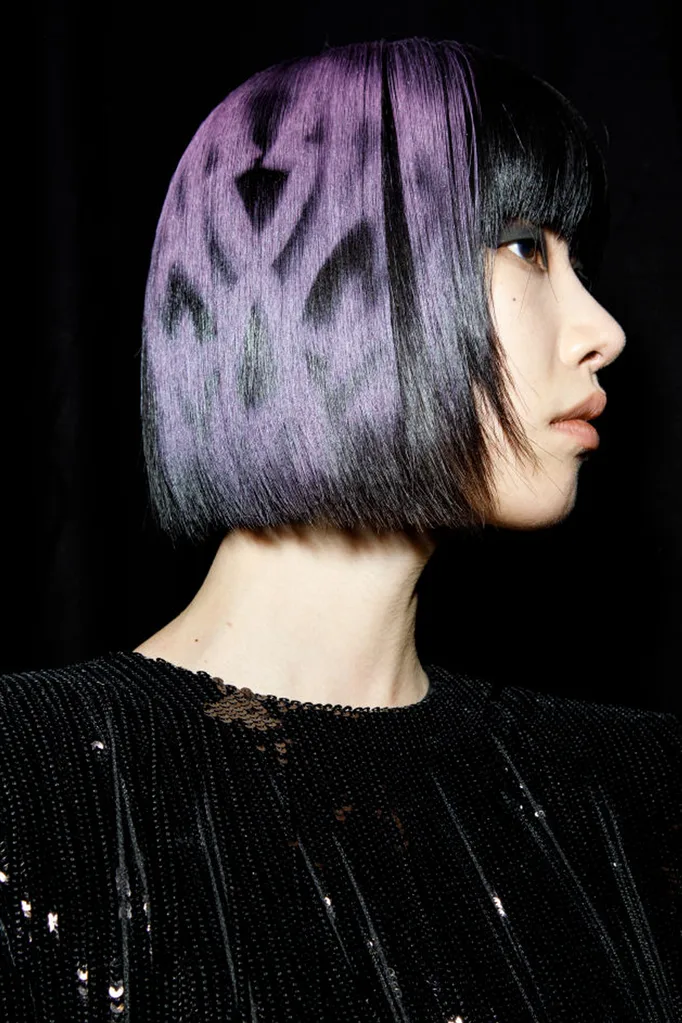
Then there’s the weather. And any fair-weathered friend will tell you that humidity, sun, wind and heat will not only impact your daily wardrobe decisions, but how your hair behaves, too.
How The Weather Affects Your Hair
A hair-weather cheat sheet…
Humidity
Humidity makes straight hair curly, and curly hair frizzy. How? Humid air causes hydrogen bonds to form between the proteins in your hair, which triggers curls and frizz.
Hot weather and wind
Both can increase the rate of moisture evaporation, causing hair to dry out.
Sunlight
Direct sunlight from UV rays can impact your strands’ molecular growth. Protect your hair by wearing a hat or even better, a silk scarf, which is gentler on the strands and causes less friction than a hat may do.
Daily wear and tear
Choose a good quality hairbrush or comb and oversized scrunchies as opposed to small elastics for hair tying, which can cause breakage.

How To Treat Dry & Damaged Hair: The Repair Kit
Trim your hair regularly
We’ve all experienced the push-pull of wanting to grow our hair but knowing a trim will do it a world of good. But regular trims will, in fact, help your hair. Dry hair enables and can accelerate split-ends, and the further north those split-ends travel, the more damaged, brittle and unruly your hair is. Regular trims mitigate this problem.
Don’t wash your hair too often
Over-washing your hair strips the natural oils, whose job is to coat, nourish and add shine to your hair strands. It’s tricky to nail the perfect ‘hair washing frequency’, because every person is different. That is, the scalp, hair texture and type, condition, products used, weather etc can all impact an individual’s hair and needs. But generally, those with normal hair should wash it every two to three days. If you have dry hair, try to go an extra day and monitor your hair, to determine your best routine. It’s a bit of a balancing act, because washing hair too often causes dryness and hair to become brittle, but not washing it enough can cause product build up and a clogged scalp.
Wash your hair using lukewarm water
Lukewarm water is perfect for activating shampoos and conditioners, ideal for body temperature and great for protecting the strand’s natural oils. In summer, try washing hair with colder water, which helps to close the cuticle and protect inner moisture, whilst flattening the cuticle surface, promoting shinier hair.
Apply nourishing hair masks regularly
An enriching hair mask containing essential oils and nutrients will nourish and strengthen your hair strands. If your hair is particularly dry or damaged, go for an ‘extra strength’ or ‘deep conditioning’ variety.
Avoid using excessive direct heat
We all know that 300 degrees of heat is not good for our hair. Save the curls or poker straight ’do for special occasions. When you do use heat appliances, including hair dryers, use a good quality heat protectant product to avoid cuticle damage.
Damaged Hair Repair Ingredients
Invest In Good Quality Ingredients & Products
Argan oil helps strengthen and hydrate hair, adds a heat protective shield and helps minimise damage caused by heat appliances.
Coconut oil helps improve the health of your hair, moisturise and repair damage and prevents protein loss (protein loss in strands can make hair thin, fragile and prone to breakage). Coconut oil hair products such as hair masks and shampoos and conditioners work best.
Biotin, or vitamin B7, is crucial for skin, nail, and hair health. Paired with collagen, this blend helps nourish hair for a full, healthy look.
Collagen is a protein the body produces naturally, but as we age, our body produces less. Collagen increases the body’s hair building proteins, which can help achieve longer, healthier and thicker hair. It is available as a supplement as well as an ingredient in some hair products.
Avoid parabens and sulphated surfactants. Parabens can cause the hair to dry out, scalp irritation and colour fading. Sulphates strip the dirt and product build up from the hair, but can also strip the hair or natural oils needed to maintain moisture.
A healthy diet and lifestyle. Don’t underestimate the power a nutrient-rich diet, regular exercise, good sleep and stress management can play in supporting healthy hair growth.
Brought to you by OGX.


